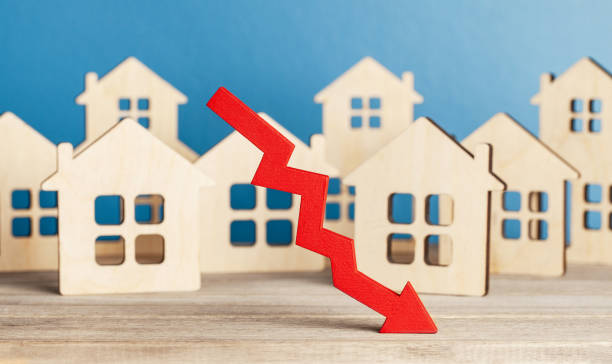Market crashes can be daunting, but with the right strategies, you can predict and prepare for them effectively. This article will cover key indicators to watch, preparation strategies, and what you should do to protect your investments.
Understanding market indicators
To predict a market crash, it’s crucial to understand the different market indicators that can signal an impending downturn. These include economic indicators, financial indicators, and market sentiment.
- Economic Indicators: Pay attention to GDP growth rates, unemployment rates, and consumer spending. If these numbers start to dip, it may be a sign that a market crash is looming.
- Financial Indicators: Look at corporate earnings reports and debt levels. High levels of corporate debt combined with declining earnings can be a red flag.
- Market Sentiment: Survey data and investor sentiment reports can provide insights into how confident investors are feeling. A sharp decline in sentiment can precede a market crash.
Diversify your portfolio
Diversification is a tried-and-true method for mitigating risk in your investment portfolio. By spreading your investments across various asset classes and sectors, you reduce the potential impact of a market crash on your overall portfolio.
- Invest in different asset classes such as stocks, bonds, real estate, and commodities.
- Diversify within each asset class to include a range of sectors and industries.
- Consider international diversification to hedge against country-specific risks.
By following these steps, you ensure that your portfolio isn’t overly reliant on any single investment, reducing the risk of significant losses during a market crash.

Build an emergency fund
Having a robust emergency fund can provide a financial cushion during a market crash. This fund should be easily accessible and cover at least six months of your living expenses. A well-funded emergency account gives you the financial flexibility to weather downturns without having to liquidate investments at a loss.
To build an emergency fund:
- Calculate your monthly expenses to determine the size of your fund.
- Set up a dedicated savings account separate from your investment accounts.
- Regularly contribute to this account until you reach your target amount.
Stay informed and educated
Knowledge is power when it comes to predicting and preparing for market crashes. Stay informed by regularly reading financial news, subscribing to credible financial newsletters, and following market experts.
Additionally, educate yourself on the history of market crashes and the economic factors that contribute to them. This knowledge will help you recognize early warning signs and make informed decisions.
- Read books and articles on market theory and history.
- Attend webinars and workshops led by financial experts.
- Join investment forums to share insights and experiences with other investors.
Review and adjust your investment strategy
Regularly reviewing and adjusting your investment strategy is crucial for staying prepared for potential market crashes. Periodically assess your portfolio’s performance and relevance to your long-term financial goals. When necessary, reallocate assets to align with your risk tolerance and market conditions.
- Set up periodic portfolio reviews, typically quarterly or annually.
- Analyze the performance of different assets and sectors.
- Make adjustments to your asset allocation based on market outlook and personal circumstances.
Consistently revisiting your investment strategy ensures that it remains aligned with current market realities and your financial objectives.

Conclusion
Predicting and preparing for a market crash involves understanding market indicators, diversifying your portfolio, building an emergency fund, staying informed and educated, and regularly reviewing your investment strategy. By taking these proactive steps, you can protect your investments and maintain financial stability during turbulent times.
FAQ
Can I predict a market crash with certainty?
No one can predict a market crash with absolute certainty, but by monitoring key indicators, you can increase your chances of foreseeing a downturn.
How often should I review my investment strategy?
It is recommended to review your investment strategy at least annually, though quarterly reviews can provide more timely adjustments.
What is the ideal size of an emergency fund?
An ideal emergency fund should cover at least six months of your basic living expenses.
Should I completely avoid stocks if I fear a market crash?
No, instead of completely avoiding stocks, consider diversifying your portfolio and focusing on stocks with strong fundamentals.
What role does market sentiment play in predicting a crash?
Market sentiment is a crucial indicator; a sharp decline can signal widespread investor worry, often preceding a market downturn.
